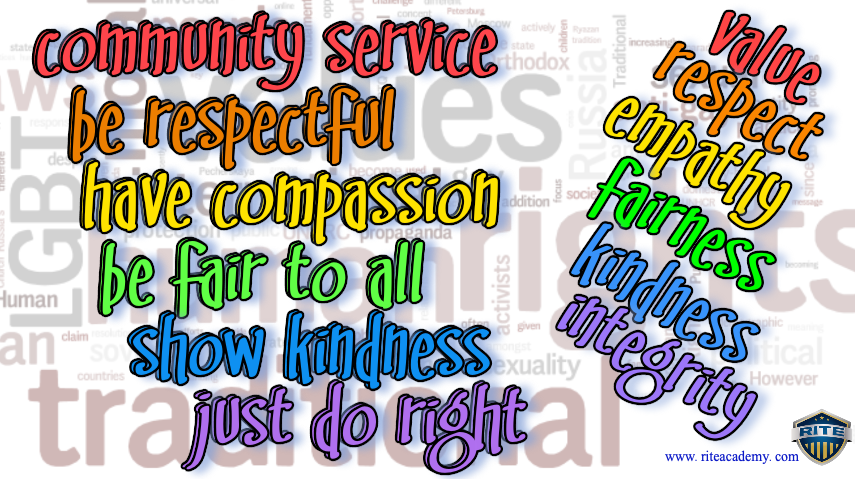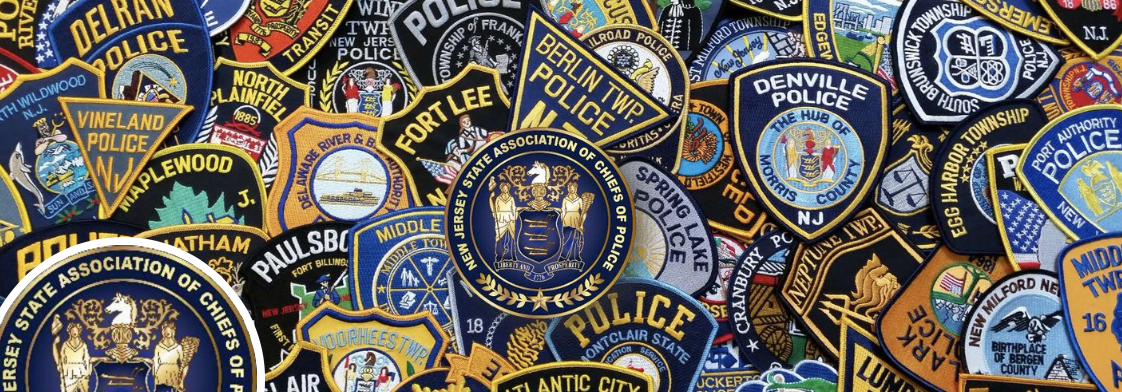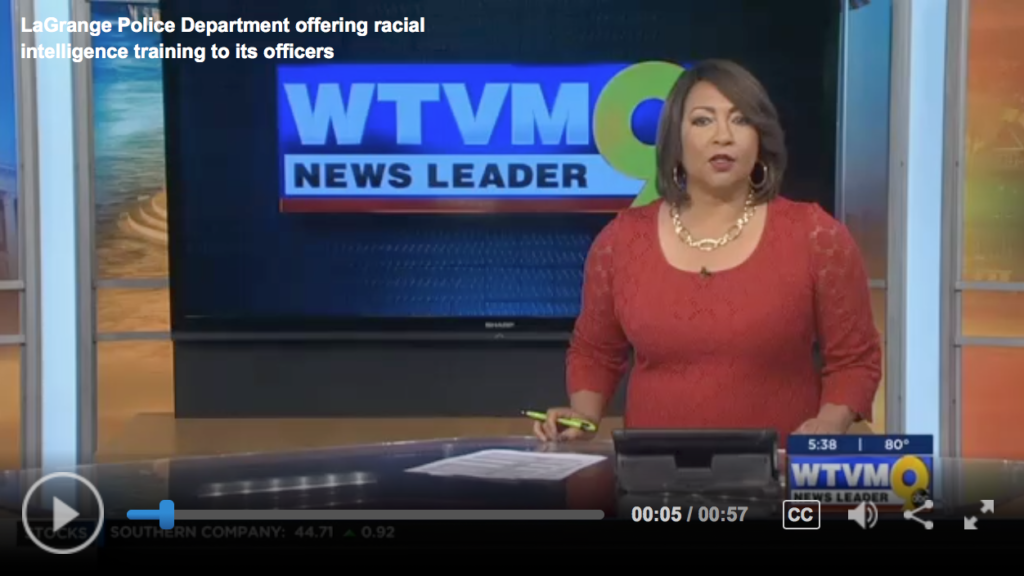Combat Hate Crime Agitators with Police Culture Resiliency
Hate crime uprisings have been popping up more and more across America, in our communities and college campuses. These sudden flash points quickly ignite causing community members to be caught in the middle. LGBTQ, minorities, and religious-specific members have all been targeted unfairly.
As public service agencies scramble to maintain protective order, they are also tasked with making sure they are respectful to everyone in the community, even the agitators whose values may not align with the standard norm.
These activists while expressing their First Amendment Rights, often highlight the differences amongst us, like throwing gas into a bonfire, igniting towering flames.
Our respectful differences are what builds that special VALUE inside our communities ~ Linda Webb
Community member normalcy is vastly diverse, and ever-changing. Our differences are the special ingredients that make up our community. Staying ahead of this diversity and being inclusive of everyone is the key to success.
4 Communities Step Up to Change the Culture
1. Newark police blazing trail with new protections for transgender suspects
“It’s long overdue” said Newark Public Safety Director Anthony Ambrose in an interview. “It’s something that will only help.”
Newark is not the only department re-writing how officers should interact with people who are lesbian, gay, bisexual, transgender or questioning their gender identity (simplified as LGBTQ). The West Orange Police Department recently began training on similar rules, and the attorney general’s office is working on guidelines that would apply to the entire state.
April 2019 – Read the Newark police article
2. Seattle Police Department’s policy on respectful treatment, as well as the City of Seattle’s policies and/or guidelines that prevent gender identity discrimination when interacting with transgender individuals.
This policy applies to all employees and establishes guidelines for the appropriate treatment of transgender individuals who come into contact with the Seattle Police Department. Officers shall consider a person to be transgender if the person identifies themselves as transgender or, if upon reasonable belief that a person may be transgender, the officer asks and receives an affirmative response. Officers will use their own discretion whether or not to ask a person of their gender identity.
May 2019 – Read the Seattle police article
3. Philly police unveil updated policy for interacting with transgender, nonbinary people
That subtext was not mentioned during the news conference. Deja Lynn Alvarez, a transgender woman who chairs the Police Department’s LGBT liaison committee, said that LGBTQ people had previously suffered “horrible” treatment from city cops, but called the policy changes “monumental,” and praised the city and department for working with community members to draft them.
June 2019 – Read the Philly police article
4. New Jersey police to be trained in updated policy for interacting with trans people, attorney general announces
Most recently New Jersey Attorney General, Gurbir Grewal, took proactive measures by announcing this new directive (2019-3) recognizing Law Enforcements Interactions with Transgender Individuals and LGBTQ.
“Building on the extraordinary work of law enforcement agencies across this country and right here in New Jersey,” Grewal said in a news release, “we’re ensuring that our officers will act in ways that promote the dignity and safety of LGBTQ individuals, whether they are victims, witnesses, suspects, arrestees, or other members of the public.”
Nov. 2019 – Read the NJ Attorney General article
Step Up to Change Your Agency’s Culture
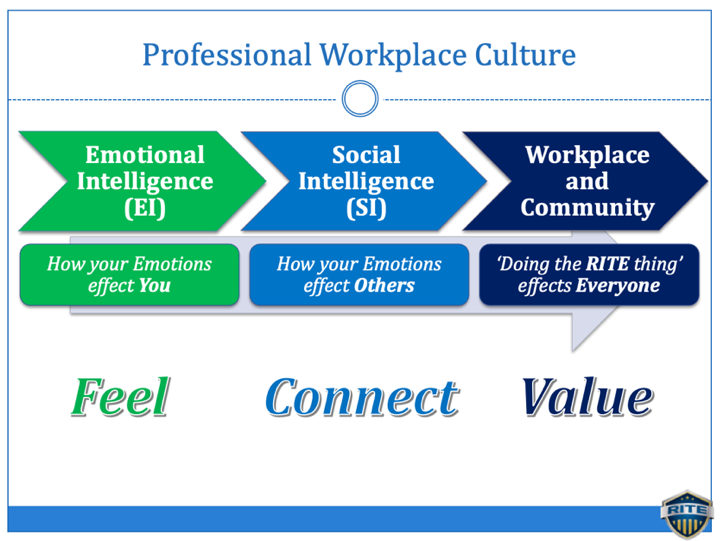 Public service agencies must enhance their own police and corrections culture from within their ranks, by helping each of their officers through resiliency training, and diverse cultural training that includes Emotional Intelligence, Social intelligence, and Racial Intelligence. (RITE – Racial Intelligence Training and Engagement)
Public service agencies must enhance their own police and corrections culture from within their ranks, by helping each of their officers through resiliency training, and diverse cultural training that includes Emotional Intelligence, Social intelligence, and Racial Intelligence. (RITE – Racial Intelligence Training and Engagement)
Each officer carries within them their own unique values and cultures, but they also potentially carry implicit biases, child-hood issues, and hot buttons. Most officers have (but rarely admit) the PTS trauma they’ve experienced over the years while performing their day-to-day jobs.
While officers try to be respectful and ‘connect’ with others, (Social Intelligence), it can be difficult without Emotional Intelligence. Learning how they ‘feel’ is the key to building ‘value’ (Racial Intelligence) with their community stakeholders.
Before I can truly add value to others, I have to know and understand my value, and how I feel. ~ Randy Friedman
Some public safety members interactions in the community may display a lack of empathy, simply due to a lack of education and unfamiliarity with their community members differences.
Enhancing your police culture through proactive education needs to be a priority to face off with hate crime agitators. On top of that, those ‘cop paparazzi’, are waiting on the sidelines with their cell phone cameras, hoping to capture the officer acting inappropriately.
States have been taking steps to include detailed guidelines on how to be respectful of community stakeholders ensuring proper procedures are in place for anti-discrimination.
8-Steps to a better Workplace Culture:
- Establish professional workplace culture standard operating procedure
- Conduct professional workplace training to include, Harassment & Anti-Discrimination Training
- Provide comprehensive education on LGBQT and race/religious cultures specific to your community
- Provide to every police officer ‘Resiliency Tools and Exercises’ they can utilize to help diminish PTS(D) exposure, and Emotional Intelligence Awareness
- On-going review of community stakeholder complaints, internal complaints, and repetitive use-of-force, lacking de-escalation options
- Agency-wide commitment to professional workplace culture structure and accountability for all employees, including anti-discrimination, and harassment.
- Social Media Posting Policy
- Be aware of toxic employees Do not take a Blind-eye to toxic employees
It starts from within your agency first, by setting up professional workplace culture measures. These proactive steps will give you the advantage, when the hate crime agitator, comes into your community.
You will be ready to show the media and your community members the proactive steps you took to serve inclusively, and diversely to protect all the rights of everyone in the community.
RITE Academy was highlighted in a nationally recognized Ted Talk: https://youtu.be/4tCJPEiIi80
RITE Academy provides Professional Workplace Culture Training that includes take away tools that help improve communication, and address Implicit Issues. These RITE take away tools provide an accountability needed to reinforce the professional workplace culture, that the police executive can expect within the agency.
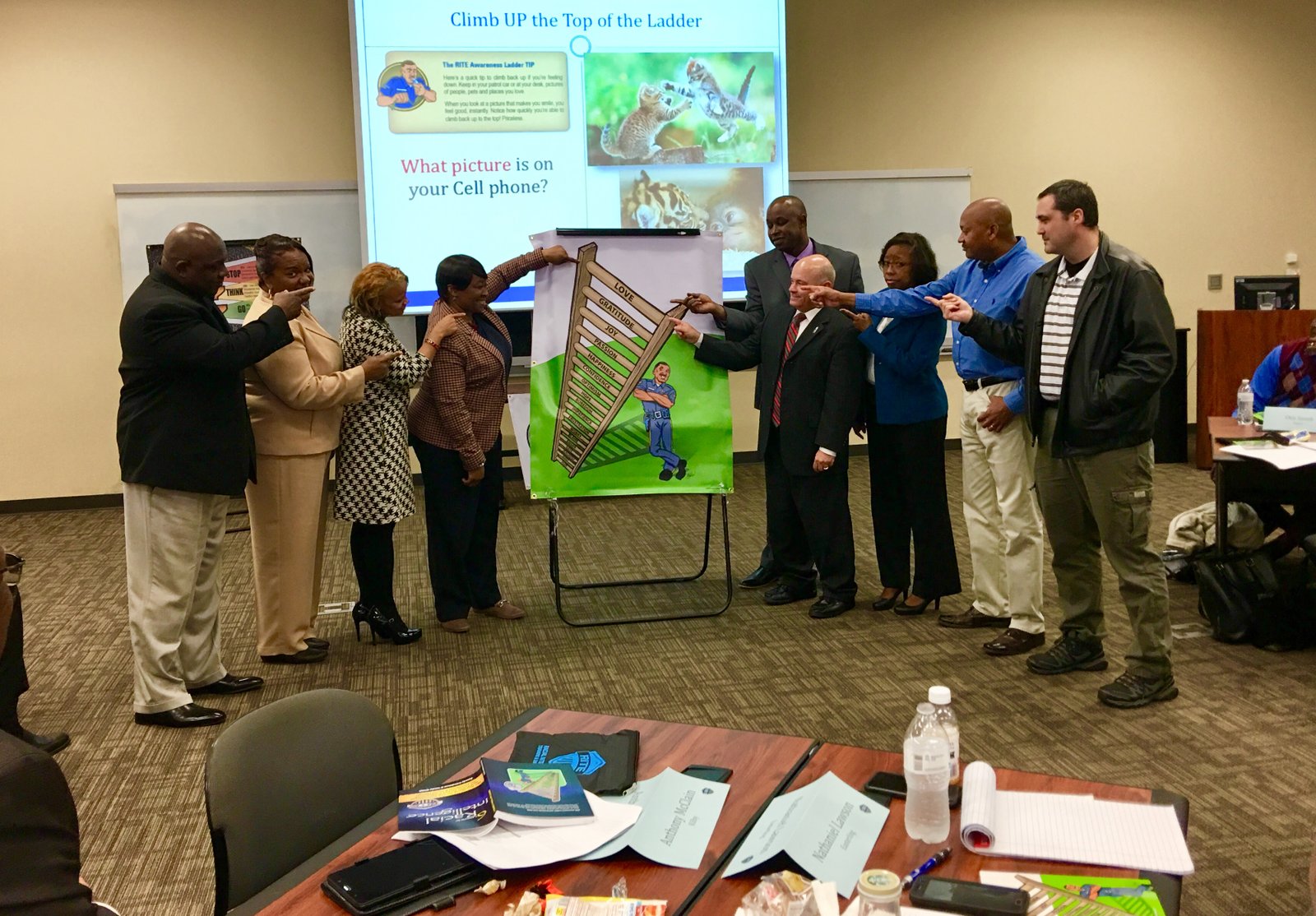
About RITE Officer Training – It starts with helping officers communicate with themselves, and the community more effectively. The RITE Ladder Tool teaches EI & SI that builds Career resiliency, improves Department morale, helps Professional workplace culture and reduces police misconduct to mitigate risk.
Check our EVENTS page for current trainings. For private classes where we come to you… Contact us below.

